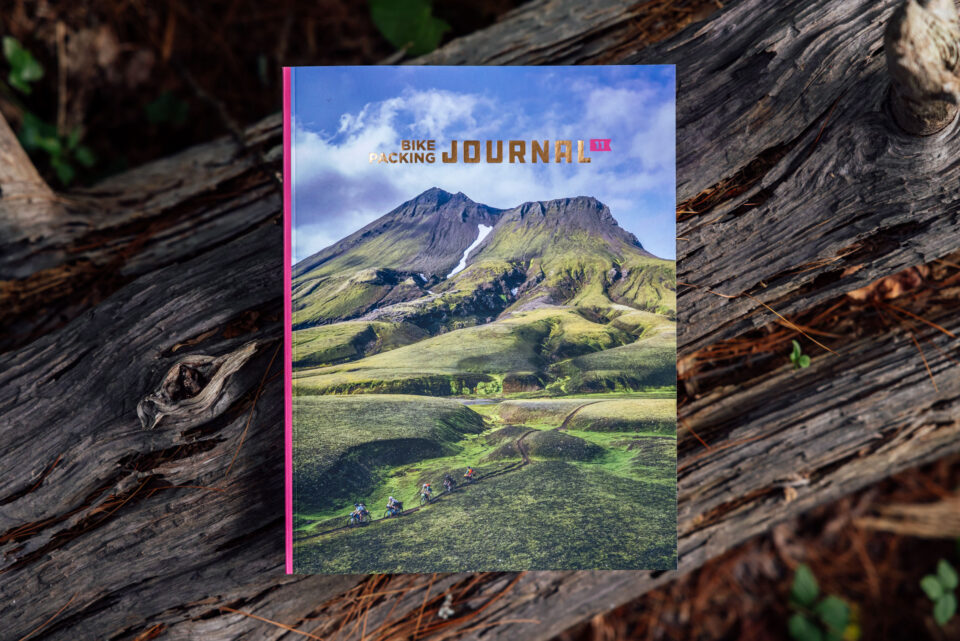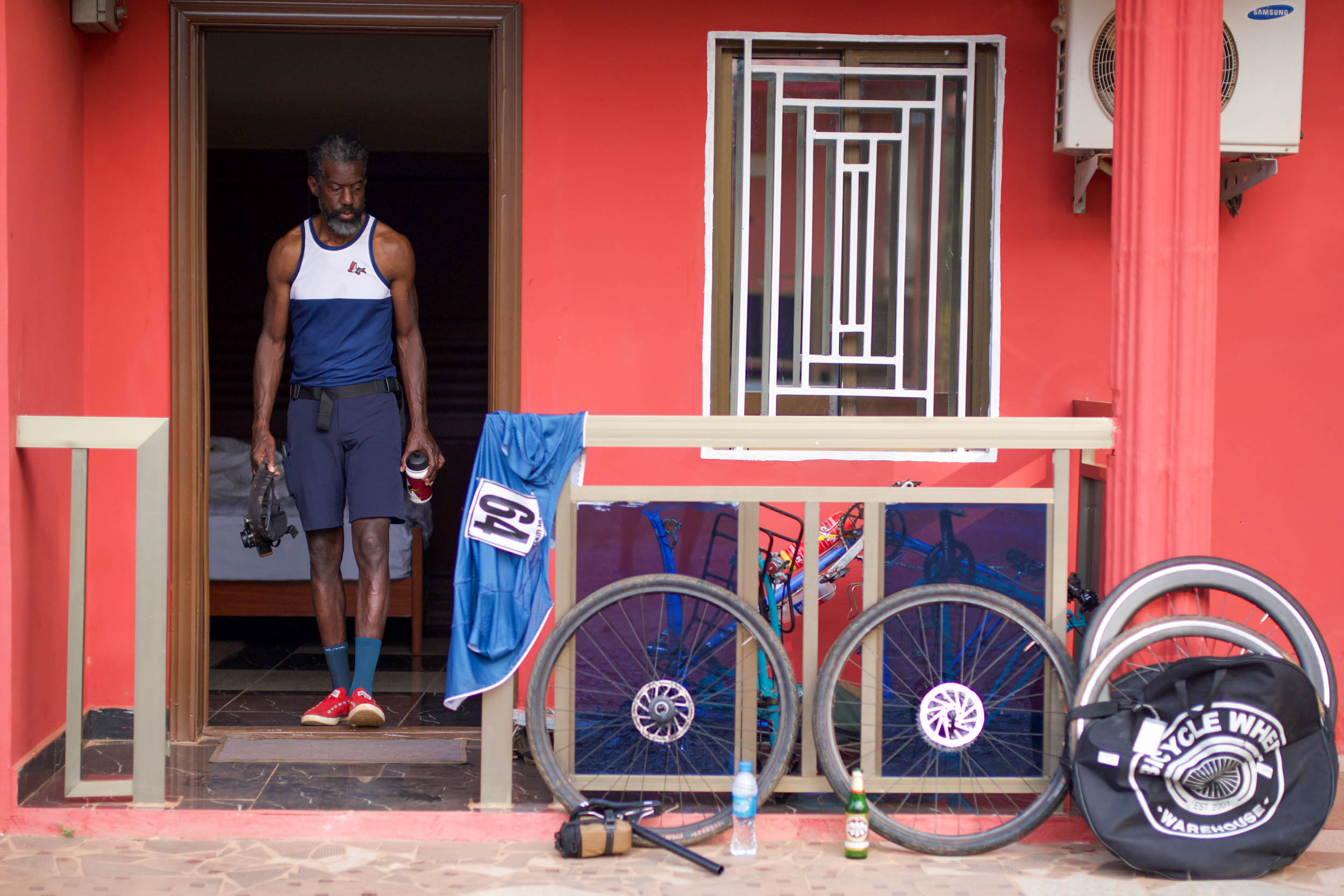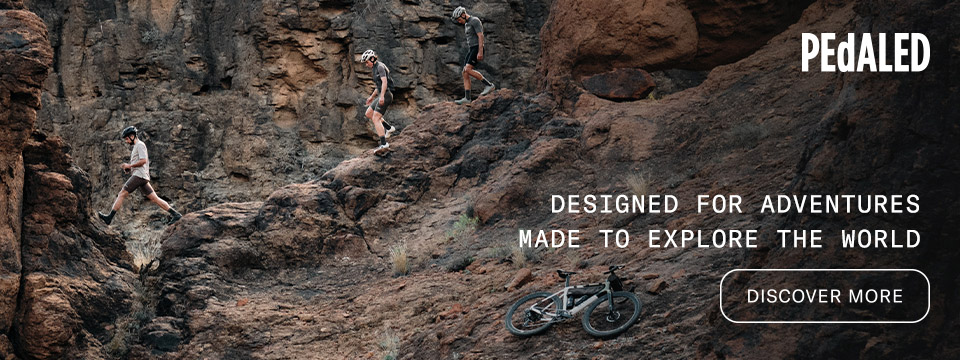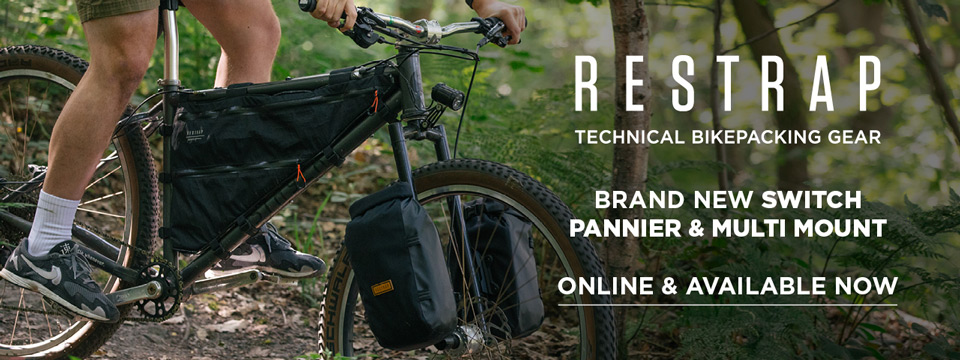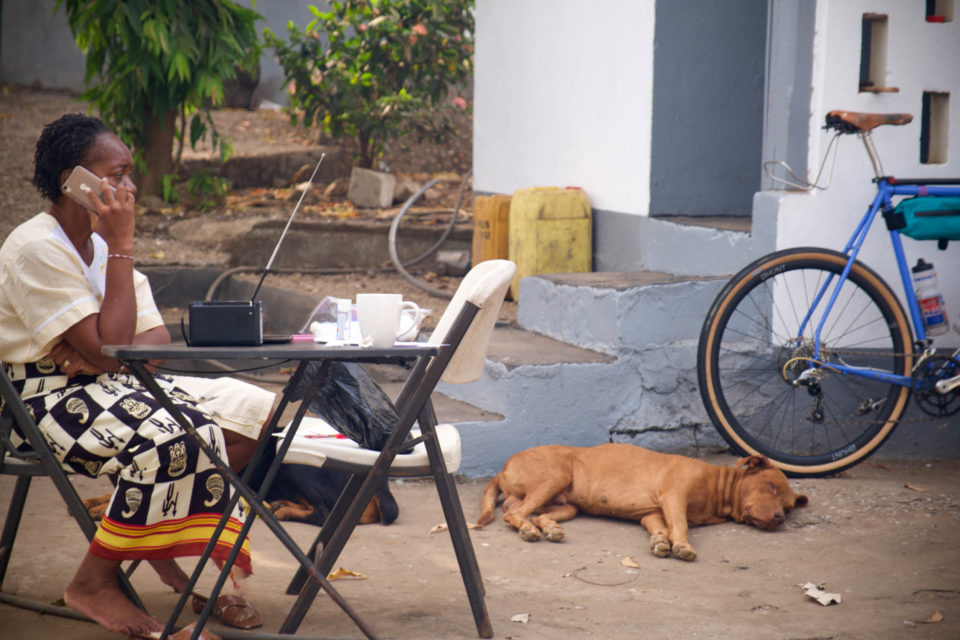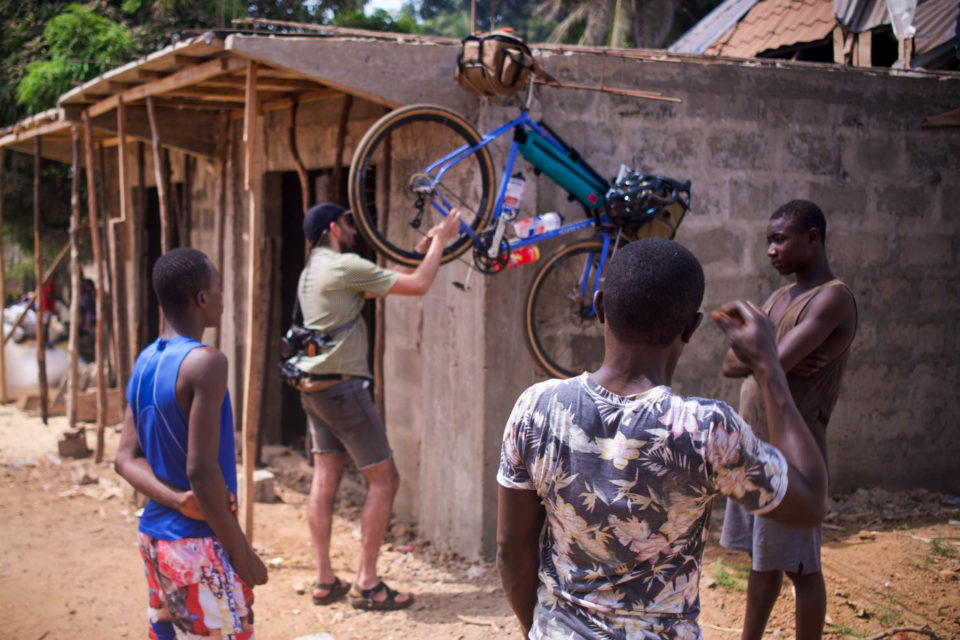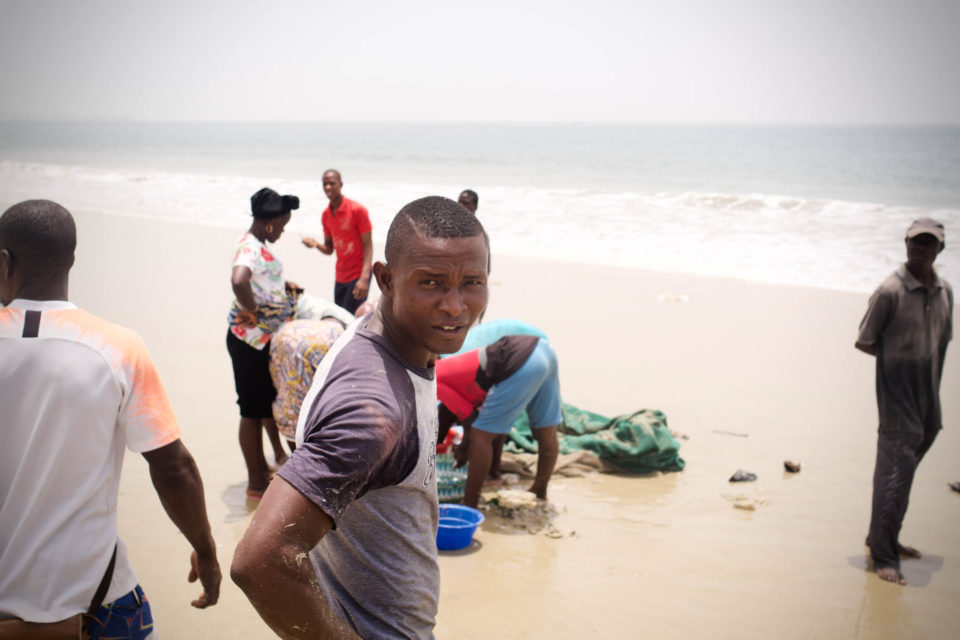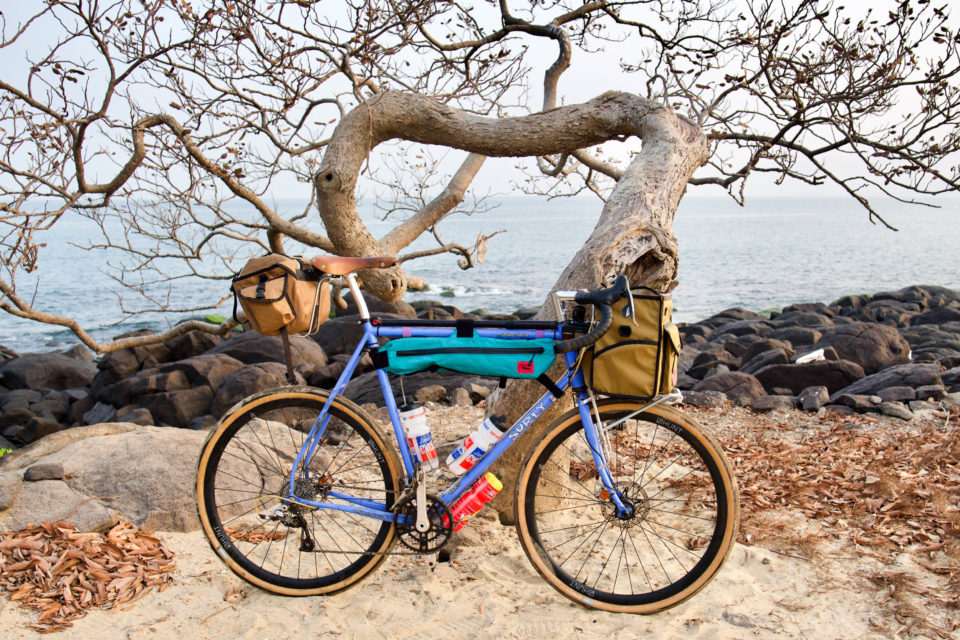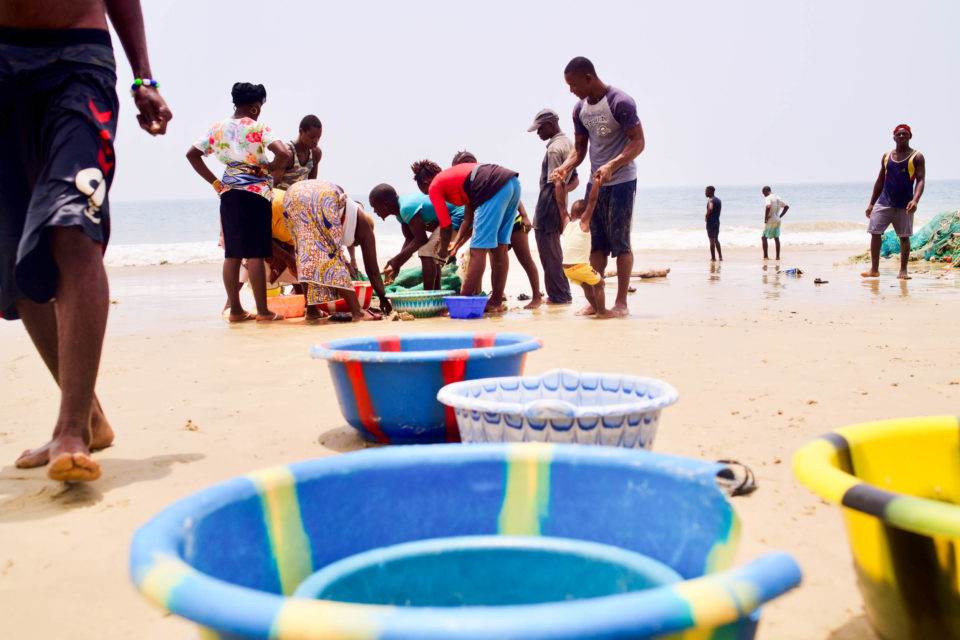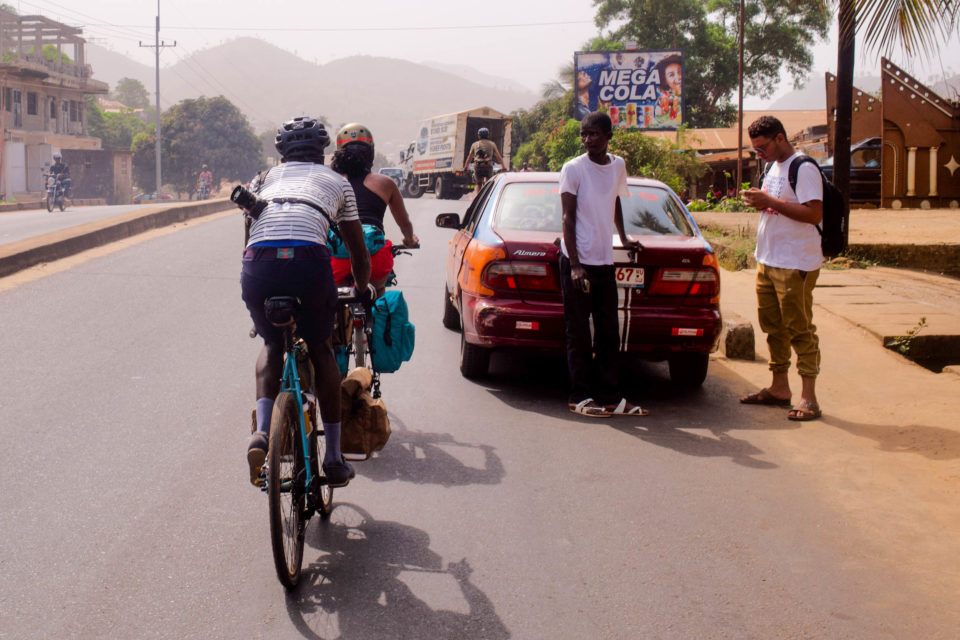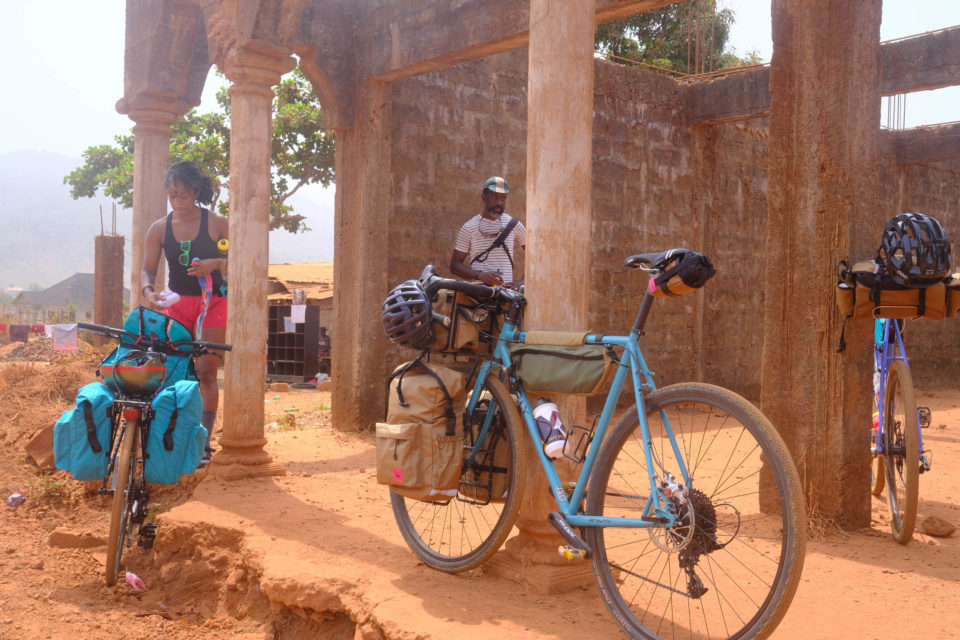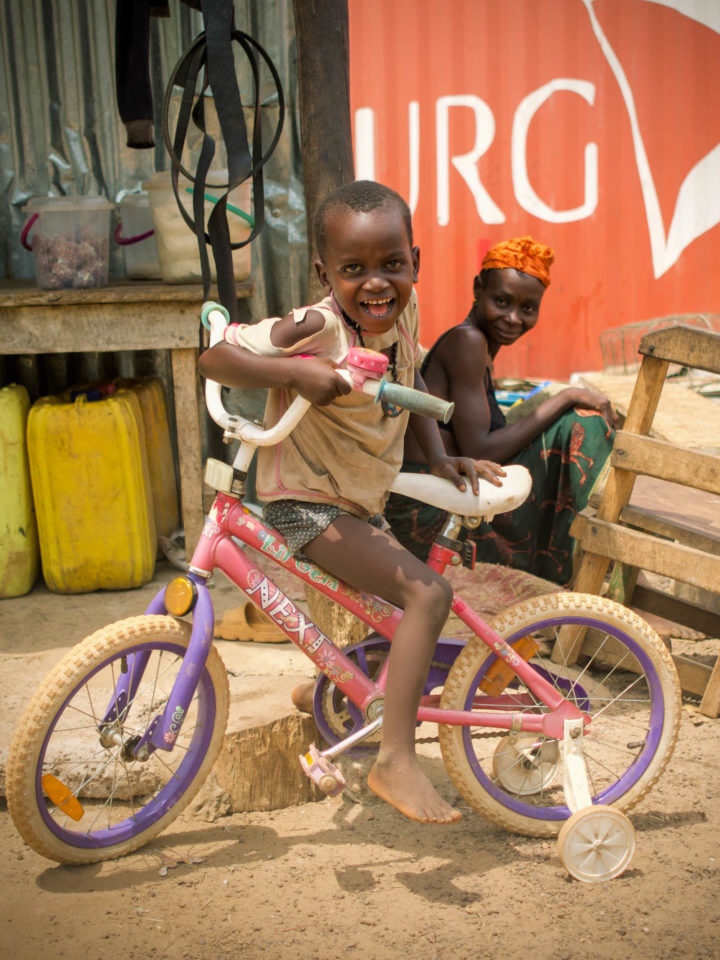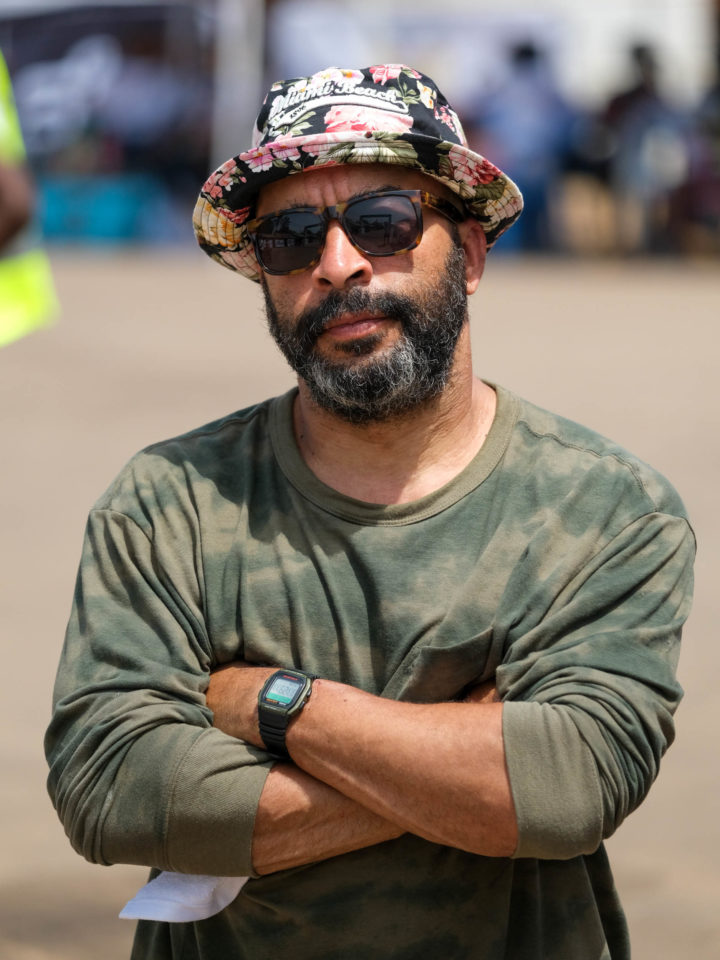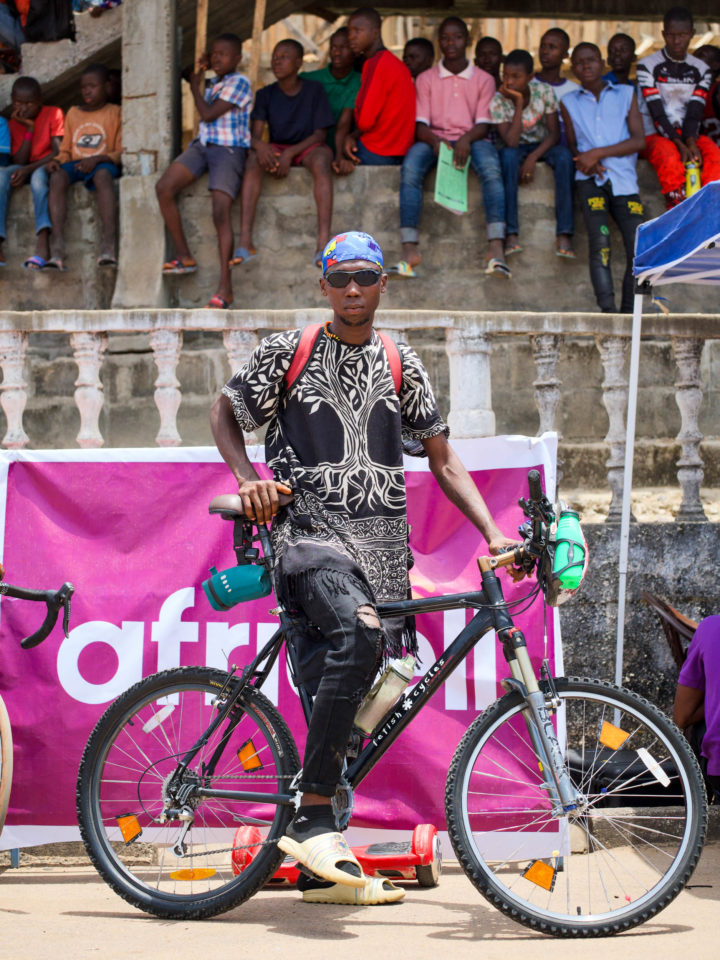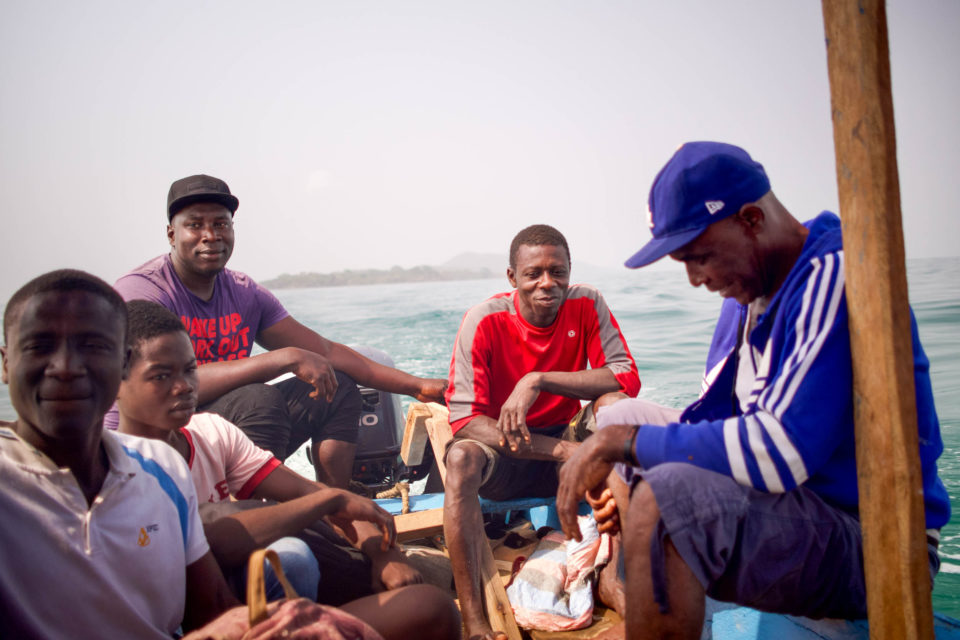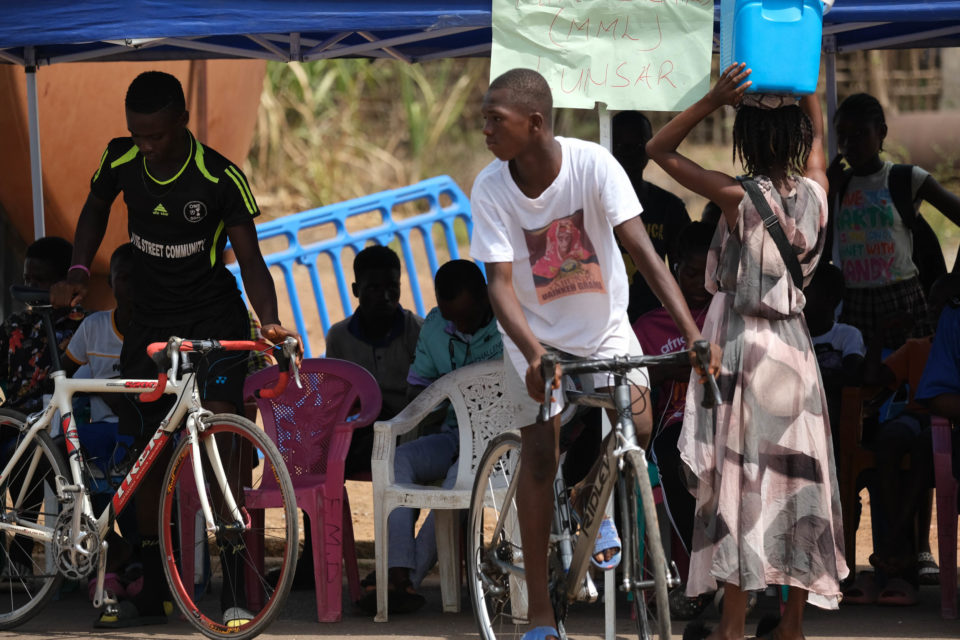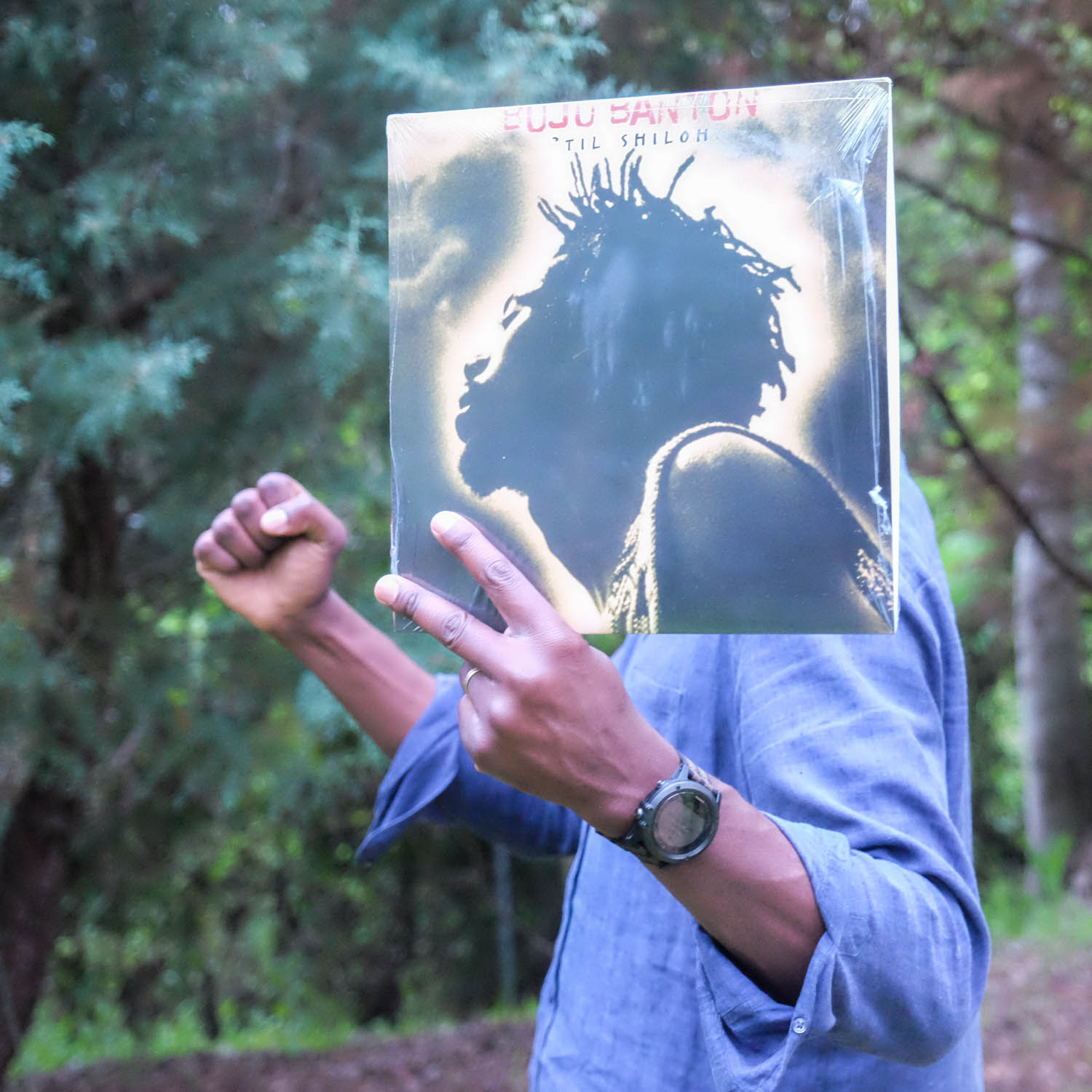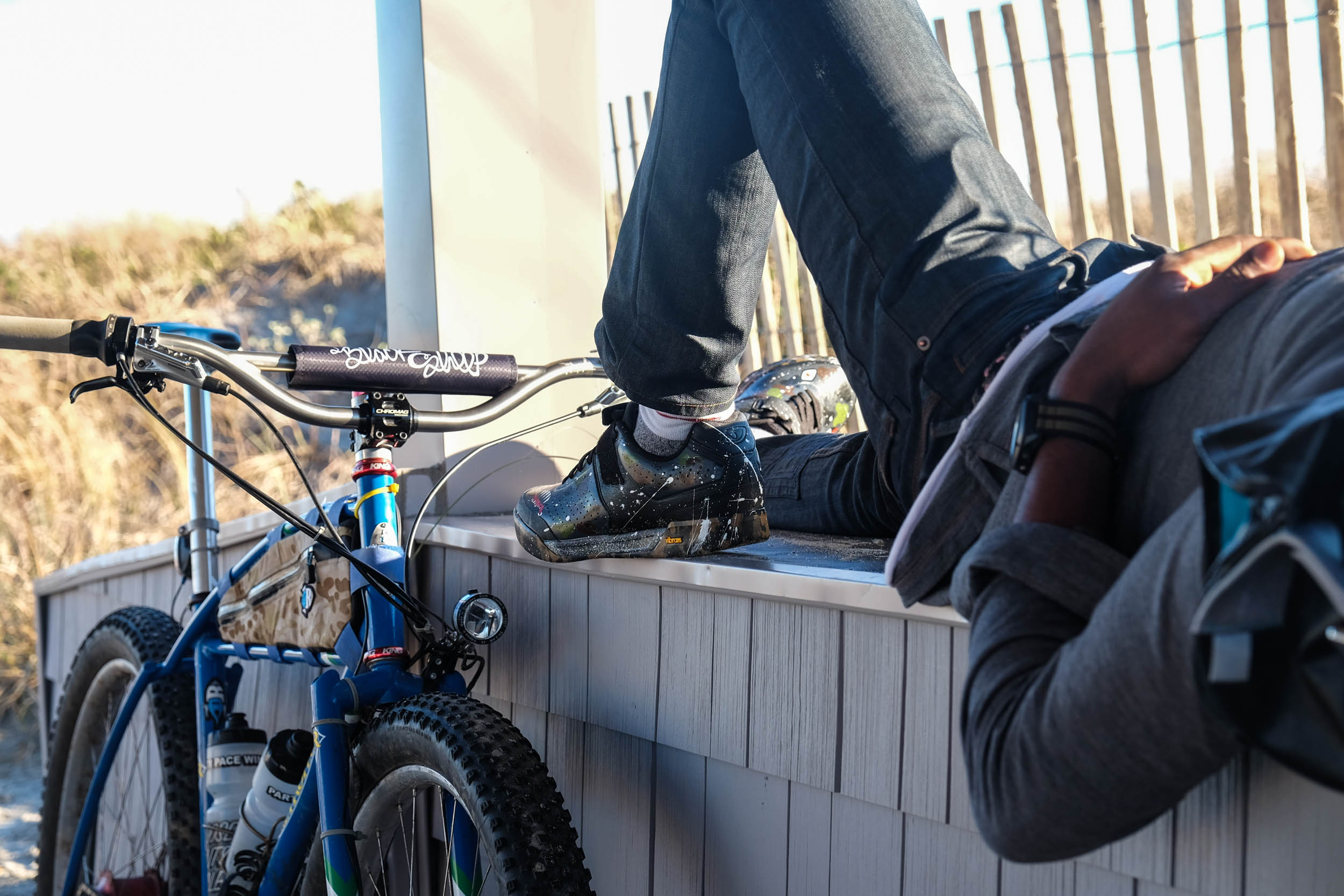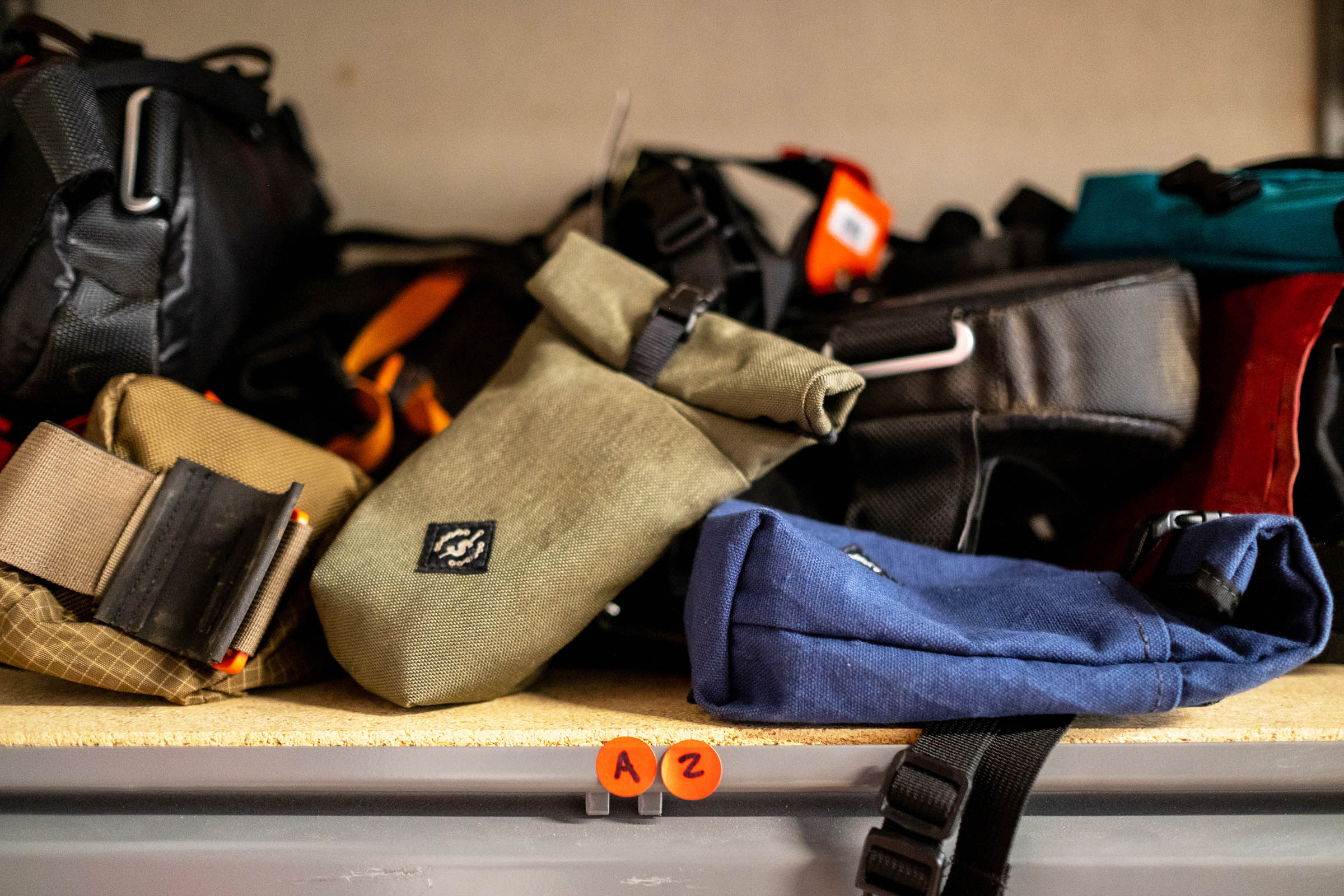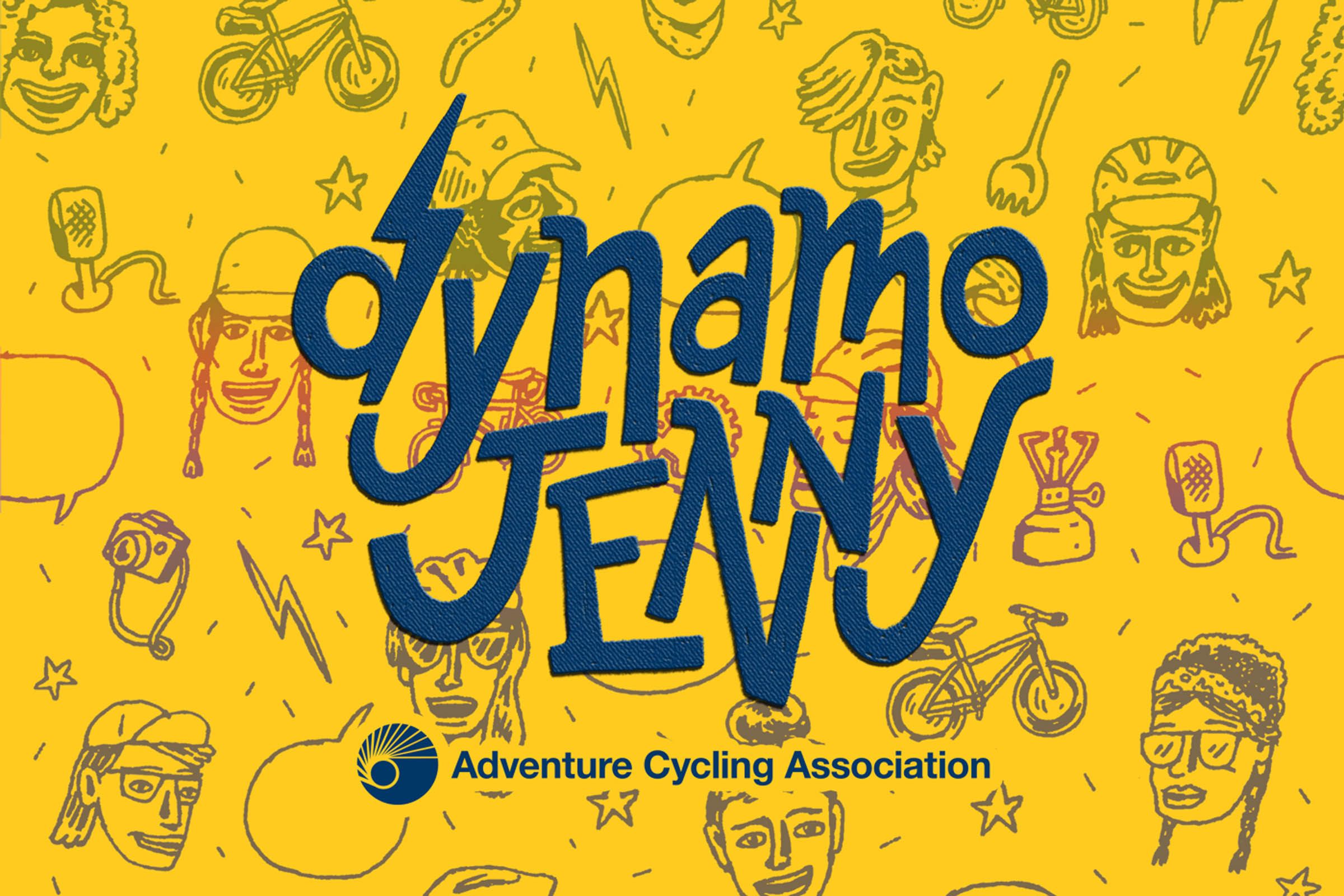Home Again: A Bike Ride to a Bike Race (Film)
“Home Again” is an exceptional new short film that follows a group of friends on a bikepacking trip across Sierra Leone in West Africa to connect with their roots and each other. Follow their journey of getting to know themselves and finding common ground with the people they met as they pedaled to the starting line of the 2022 Tour de Lunsar here…
PUBLISHED May 17, 2022
Words and photos by Slim Wonder, film by Slim Wonder, Lehi Cano, and Eric Brewer
We all went through it, right? We were there in 2020 and 2021. We shrank inside ourselves and we grew alone—there have been lots of articles and podcasts about the isolating effects the pandemic had on all of us. For many of us, we found refuge in exploring new hobbies. My wife started composting and grew a vegetable garden. Most of my time cycling was spent commuting to and from work, and I rode my bike more in 2020 and into 2021 than I had in a long time.
Apparently, so did the rest of the world. Bike sales soared as people rediscovered the happiness that being on two wheels provided for so many of us for so long. As often as I’d be out on a bike ride alone and enjoying those moments of isolation, I also found that technology afforded some semblance of connection that would otherwise have been impossible during those times. We went to church, work, and school via Zoom. We had a FaceTime family reunion. I messaged and called relatives abroad on WhatsApp.
I’ve talked about my struggles with the double-edged sword that is social media before, but one of the few positives it has provided me over the years has been the opportunity to connect with people with similar experiences and common stories that I wouldn’t have come across otherwise. I posted that I was in Mississippi once and Nakia (@big_keez) replied that his Mom grew up in that same town and maybe her people knew my people. Eric (@eric_channing) posted that his dad was a mathematician and I replied that my dad was a math professor too. Similar things happened with others, and this went on and on as we connected through books and records and coffee and cameras. Oh, and we also liked bikes.
As the conversations continued and we stayed in contact, the sense of isolation that COVID held over us waned a bit, and we joked about what it would mean to connect with each other and reconnect with our shared histories. I posted a picture from a trip to Sierra Leone I’d taken a few years earlier and Eric replied, “Hey, that’s a place I’d like to ride,” and then we laughed because the idea of travel was ludicrous and far fetched. I mean, come on, no one was traveling then.
Sierra Leone had seen the same growth in the interest and love for cycling as the rest of the world. It was hampered—as it is in so many other things—by access to resources, but cycling had started thriving there despite it all. I first learned of the Tour de Lunsar in 2019, and the pandemic hit just as the race and cycling in general began to gain momentum there. The 2020 race was canceled. Having weathered other recent crises, Sierra Leone was well prepared and took every precaution early in the pandemic for the coming wave of illness. For reasons that many have debated, West Africa was spared the heavy toll that most of the world saw amid the pandemic, and the 2021 race was held without event.
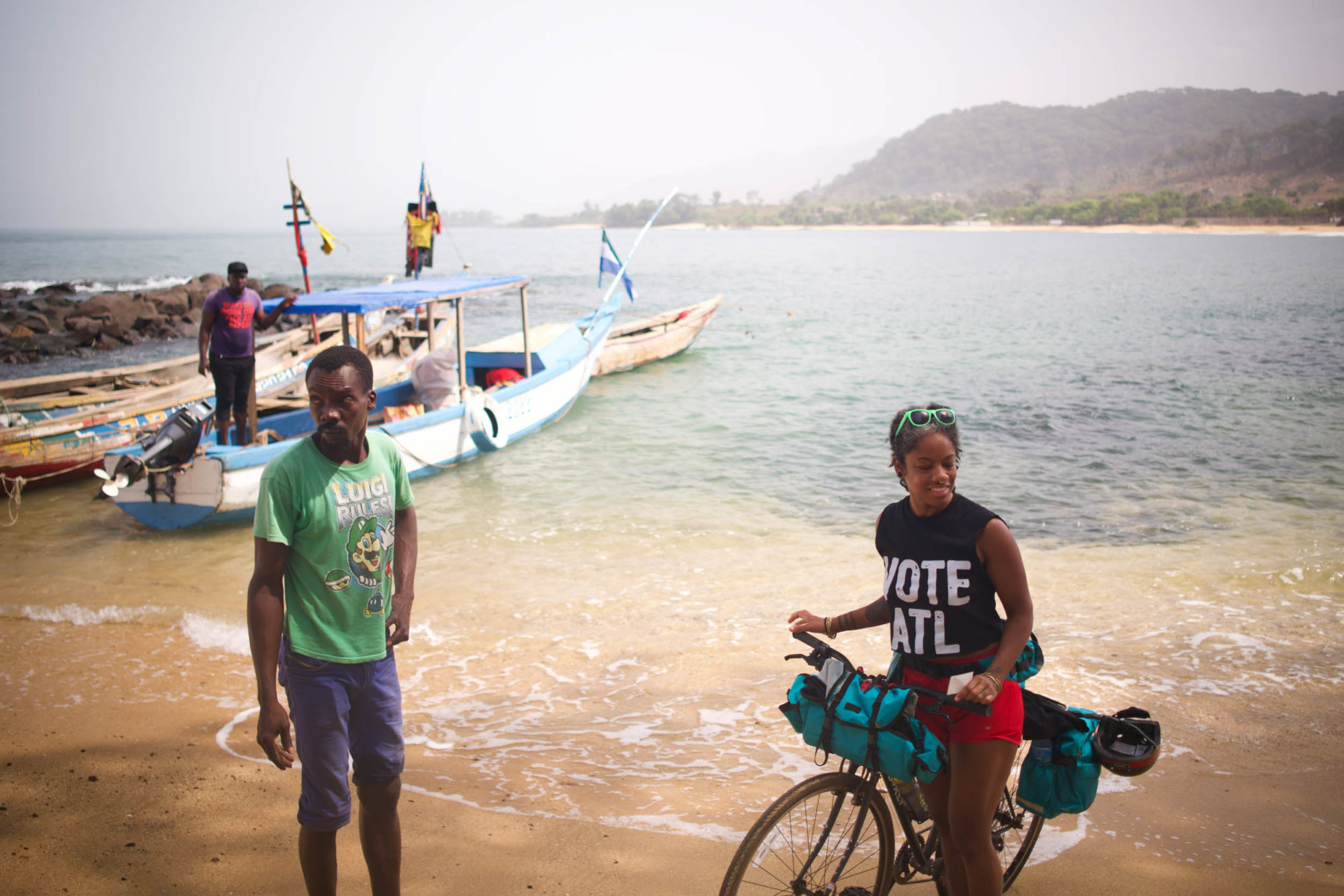
The wheels started to turn as we watched via social media, and we started talking about making our way to see the race’s 2022 edition. The race itself was the finish line, but the journey there was really the point. The purpose of the trip was for us to spend time together and talk, a mobile round table where we’d discuss our experiences as cyclists. Along the way, we hoped to get to know ourselves better, learn more of our history, and meet and connect with people—cyclists and otherwise—from across the diaspora. We hoped to find the commonalities that bound us together across thousands of miles and hundreds of years of history.
The challenges of getting to Sierra Leone during a pandemic and facing the unforeseen issues that can arise with any bicycle tour in a distant land were what we looked forward to. As anyone who subscribes to the self-flagellation that is cycling will attest, if it ain’t hard, is it even worth doing? It took a year of planning and a lot of luck. Timing was important, and things had to fall into place just right such that borders would be open and variants wouldn’t appear at inopportune times. I sent out DM’s to Instagram friends who’d voiced an interest in the trip and whose voices interested me in the community building and activism they were involved in. The excitement grew.
Over the next six months, we planned and made arrangements. Yellow fever vaccines were administered and malaria prophylaxis was prescribed. There are, after all, places in the world where living with endemic viruses is not new, and people simply do what is best and continue on. Tickets were bought and accommodations were arranged. Then a war broke out in Eastern Europe, and things were touch and go again. We saw gas prices skyrocket here in the US, and then two days before departure, our host called to say fuel wasn’t available and the country had seen rolling blackouts for a week as it didn’t have the oil to run the power plant. Diesel generators were available, but no one had the fuel to run them. We bought back-up batteries and solar chargers and boarded our flights anyway. Sometimes, after you’ve planned for all the things you can control, you have to step out on faith. There were a lot of moving pieces and people coming from different places, and the world was upside down.
Our group experienced weather delays, and luggage was lost. Flight cancellations and plane re-routes led to bikes and bags arriving at different times. We were all supposed to arrive around the same time, but for various reasons, Eric arrived a day before anyone else. When the gentleman who picked him up at the ferry stop realized there was no electricity at the rental, he actually took Eric home to his house, introduced him to his family, and fed and housed him for the night. This was our first introduction to Ajo, the spirit of celebration and friendship and goodwill to those around you, that we found the people of Sierra Leone were filled with.
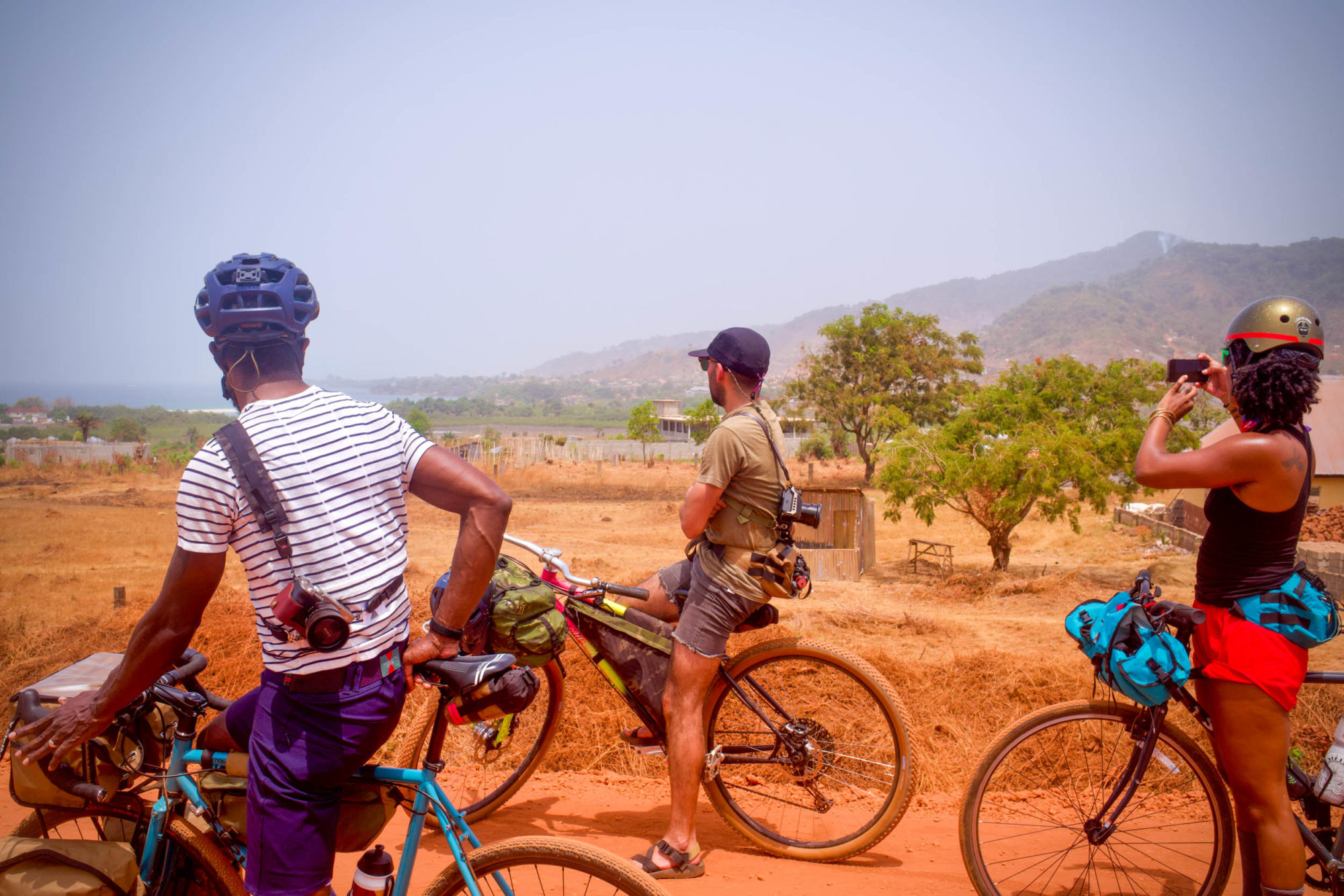
Ajo became the theme of the trip. Each time the universe tried to thwart us, someone would step in with a warm heart, a smile, and a helping hand. We saw and met people who felt like family. We rode more miles across the otherworldly red clay landscape than some of us would care to remember. The sun warmed our hearts and burned our skin. At the end of every ride, there was an epic meal. There were lobsters and barracuda and prawns fresh from the fishermen’s nets. But, most importantly, there was the connection with other people, face-to-face in real life, that we’d sought for so long. I’d spent most of the last two years riding bikes to get to work and here, at last, I felt that riding bikes had finally brought me home.
Related Content
Make sure to dig into these related articles for more info...
Please keep the conversation civil, constructive, and inclusive, or your comment will be removed.



